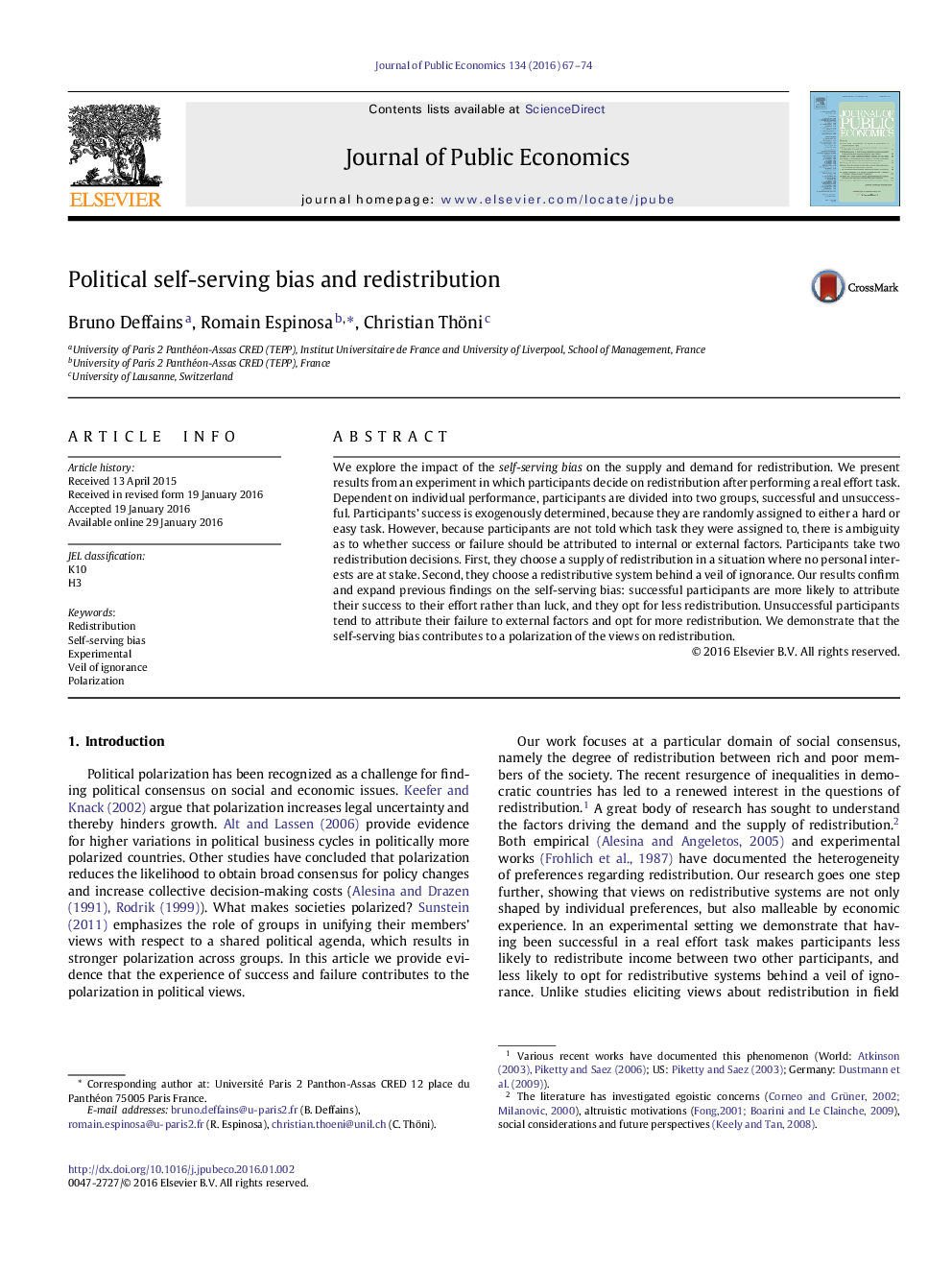| Article ID | Journal | Published Year | Pages | File Type |
|---|---|---|---|---|
| 968652 | Journal of Public Economics | 2016 | 8 Pages |
•We investigate the impact of self-serving causal attributions on redistribution choices.•We design an experiment to induce a self-serving bias among subjects under limited information.•First, we study redistribution in a situation where the decider redistributes income among other subjects.•Then, we analyze when the subject is directly affected and observe preferences for redistribution behind a veil of ignorance.•We conclude that having experienced success (failure) systematically affects causal attributions, and decreases (increases) redistribution.
We explore the impact of the self-serving bias on the supply and demand for redistribution. We present results from an experiment in which participants decide on redistribution after performing a real effort task. Dependent on individual performance, participants are divided into two groups, successful and unsuccessful. Participants' success is exogenously determined, because they are randomly assigned to either a hard or easy task. However, because participants are not told which task they were assigned to, there is ambiguity as to whether success or failure should be attributed to internal or external factors. Participants take two redistribution decisions. First, they choose a supply of redistribution in a situation where no personal interests are at stake. Second, they choose a redistributive system behind a veil of ignorance. Our results confirm and expand previous findings on the self-serving bias: successful participants are more likely to attribute their success to their effort rather than luck, and they opt for less redistribution. Unsuccessful participants tend to attribute their failure to external factors and opt for more redistribution. We demonstrate that the self-serving bias contributes to a polarization of the views on redistribution.
